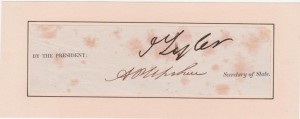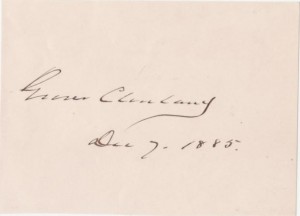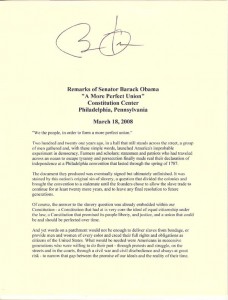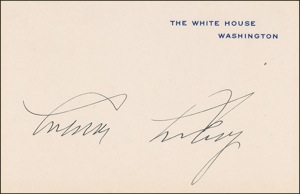
JOHN TYLER 1841-1845
Dubbed “His Accidency” by his detractors, John Tyler was the first Vice President to be elevated to the office of President by the death of his predecessor.
Born in Virginia in 1790, he was raised believing that the Constitution must be strictly construed. He never wavered from this conviction. He attended the College of William and Mary and studied law.
Serving in the House of Representatives from 1816 to 1821, Tyler voted against most nationalist legislation and opposed the Missouri Compromise. After leaving the House he served as Governor of Virginia. As a Senator he reluctantly supported Jackson for President as a choice of evils. Tyler soon joined the states’ rights Southerners in Congress who banded with Henry Clay, Daniel Webster, and their newly formed Whig party opposing President Jackson.
The Whigs nominated Tyler for Vice President in 1840, hoping for support from southern states’-righters who could not stomach Jacksonian Democracy. The slogan “Tippecanoe and Tyler Too” implied flag waving nationalism plus a dash of southern sectionalism.
Clay, intending to keep party leadership in his own hands, minimized his nationalist views temporarily; Webster proclaimed himself “a Jeffersonian Democrat.” But after the election, both men tried to dominate “Old Tippecanoe.”



